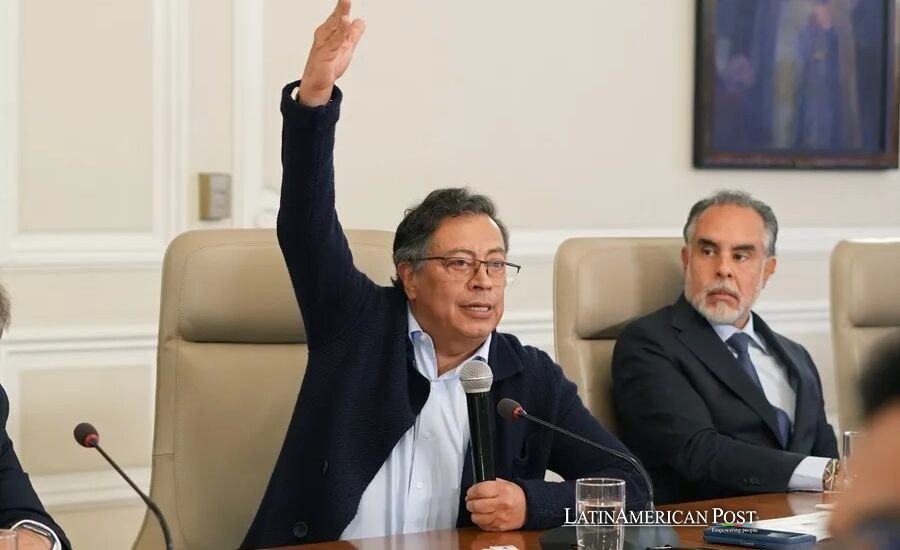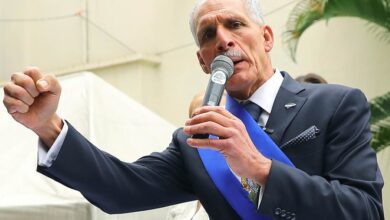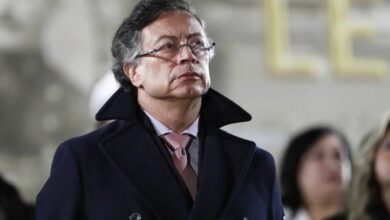Petro’s Bombshell Blunders Blow Up Colombia’s Leftist Ideological Appeal

For Colombia’s current administration, time runs short. With just 18 months until the end of his term, President Gustavo Petro faces political unrest inside his coalition along with numerous staff exits. A wave of criticism from progressive allies also challenges his leadership. Doubts about his selection of high-ranking officials, as well as his ability to implement reforms, put pressure on Petro. The president must move fast to preserve both unity and trust among his supporters. Below, we explore the controversies surrounding his appointments, examine the progressive critiques aimed at the Colombian president, and consider what this turmoil reveals about the dynamics of leftist governance in the country.
Departures Amid Controversial Appointments
Political battles escalated after Petro selected a new Chief of Staff ‒ a former ambassador who faced ethical as well as legal problems in the past. The sudden choice triggered resistance from cabinet members. Two high-ranking officials quit their posts in protest or expressed serious concerns about this appointment. One departing minister, in particular, decried alleged misbehavior tied to the official’s past, including potential cases of violence against women—an issue that stoked immediate uproar across the administration.
While some observers blame the infighting on a misunderstanding of roles, the harsh truth is that growing tensions had lurked for months. The resignations exposed how officials who once championed Petro’s coalition could no longer reconcile a cabinet lineup they perceived as betraying the progressive principles that propelled the president to power. The public questioned an administration that promised openness and responsibility yet ignored scandals linked to someone named in several graft probes.
A sudden collapse exposes fighting inside Petro’s core team: the dilemma of maintaining control through loyal allies versus upholding moral principles that drew voters. Former staff members caution that difficulties will grow if management practices remain the same. The president’s decision to stand by his new appointee exacerbates tensions, leaving watchers to wonder if new cabinet exits or further breakdowns in trust loom on the horizon.
For Petro, preserving alliances was central to his original victory—both a wide-reaching left-of-center base and moderate forces who lent him legitimacy. The administration faces doubts from devoted supporters who question its ethical position. Not just one person’s actions hang in the balance – public trust affects a complete program that promotes fairness along with equal rights or strict measures against graft. Navigating the controversy successfully calls for swift action—though so far, the president continues to defend his chosen staff, labeling critiques as “sectarian” and insisting that fulfilling the people’s mandate does not hinge on a single advisor’s past.
Progressive Voices Demanding Accountability
The harshest criticism originates from well-known figures with beliefs similar to the president, including progressive senators who really influence grassroots supporters. A number of these politicians claim that Petro’s current path endangers the reforms he pledged – environmental protection along with broader social initiatives. Several critics question his reasoning, along with the claim that quick policy results justify overlooking serious accusations against senior staff members.
The criticism highlights a wider concern: many progressive Colombians think that presidential authority alone falls short of delivering genuine social transformation. The coalition must also conduct itself ethically and transparently, both to maintain moral authority and to avoid feeding narratives that portray progressive governance as marred by the same issues it pledges to eliminate. The tension is shown in remarks by major left-wing legislators who alerted the public that unresolved party divisions may wreck the administration’s agenda.
The conflict brought back memories of past betrayals that left-wing movements suffered throughout history. Activists remember past instances where progressive movements split because of internal conflicts among leaders or faulty strategies that halted progress toward social reform. A few supporters of the president responded by saying that bridging differences is inevitable in politics, especially in a sprawling coalition, and that progressives must remain open to varied alliances—even with controversial figures—to ensure that the planned policies can survive legislative hurdles.
Despite these concerns, critics point out that moral compromises damage the administration’s reputation with voters who seek genuine leadership. Observers note that Colombia’s leftist movements historically failed to unite behind a single voice, which stems from the region’s difficult past of rebellions as well as anti government conflicts. In this sense, the meltdown over a top appointment signals a microcosm of the ideological line the presidency must walk: balancing pragmatism and loyalty against the ideals that gave it momentum.
Alleged Personal Misconduct and Bigger Political Rifts
The new official’s record includes not only potential corruption allegations but also a widely reported domestic violence case. For people who support the administration’s human rights aims, such accusations are simply unacceptable. A departing minister highlighted the official’s reported mistreatment of women, which poses a basic question: Should any equality or feminist movement accept someone with this kind of reputation?
Online platforms and advocacy groups that support strict gender violence measures have amplified public discussions about the official’s past. When an administration that stands for women’s rights hires someone with abuse allegations to a senior position, the entire mission ceases to exist. Supporters of the official’s due process understanding acknowledge that his public reputation suffers. His advocates argue that he is misunderstood while emphasizing his essential contributions to administrative accomplishments.
Additional problems arise from the vice president’s changing role as well as other top cabinet officials who openly challenged the new chief of staff. Their public criticism during a televised meeting showed a breakdown of unity within leadership. Making such complaints visible on TV created a sense of disorder supporting claims that Petro has lost control over his coalition.
The political divide reaches far beyond domestic matters: factional splits threaten to block major reforms. A weak cabinet or leadership vacuum reduces the government’s ability to address inequality, environmental challenges, and security risks. Colombia’s peace process faces pressure from criminal groups and depends on cohesive governance next to reliable leaders.
Future Course and the Search for Unity
President Petro’s fate over the next year and a half hinges on whether he can restore order, reaffirm the confidence of his progressive base, and deliver tangible results. As other political groups prepare to take advantage of the turmoil or abandon the alliance, Petro confronts a clear option: he must repair relationships with influential figures who oppose controversial nominees or face a severe split that leaves his administration without direction. If crucial reforms on education, labor, land distribution, or transitional justice stall, the public’s faith in his leftist leadership may evaporate.
Among the progressive bloc, some propose forging a new alignment that re-commits to core principles—transparency, respect for human rights, and consistent policy direction—rather than allowing high-profile appointments to overshadow the entire platform. They note that the approach Petro took early in his presidency, bridging moderate allies with grassroots activists, remains valuable. The party members believe that moral compromises risk future electoral success or block needed reforms that address financial inequality as well as help disadvantaged social groups.
Another risk lies in fueling the opposition’s narrative that the government is incompetent or hypocritical. Rivals on the right, or even centrist critics, highlight the internal drama as proof that talk of transformative change rings hollow if the administration cannot keep its house in order. Coupled with a potential slowdown in legislative progress, the negativity might tarnish the administration’s broader attempt to usher in progressive governance after decades of centrist or conservative rule.
A more optimistic view indicates that the crisis could lead to a fresh evaluation of priorities. The Petro government has an opportunity to address core issues – economic fairness, better healthcare access, or land distribution – plus demonstrate real achievements. Progress in these areas would probably outweigh temporary scandals about appointments when citizens experience actual improvements. People really want solutions, so if Petro succeeds in creating a stable cabinet, delivers concrete results, and upholds ethical principles, he could recover political strength.
Also Read: Colombia Deserves Leadership and Solutions, Not Petro’s Public Feuds
The latest turmoil in Colombia’s presidency reveals a fundamental reality about modern leftist governance: coalition building remains difficult, while principles must match everyday requirements. The selection of disputed officials risks alienating original backers, which illustrates how social justice values, along with moral credibility, demand careful consideration. If Petro navigates this challenge successfully—leveraging lessons from allies and critics—he may yet unify the fractured coalition, preserve critical reforms, and leave a lasting impact on Colombian politics. But the clock ticks fast, with 18 months left to validate that promise.





